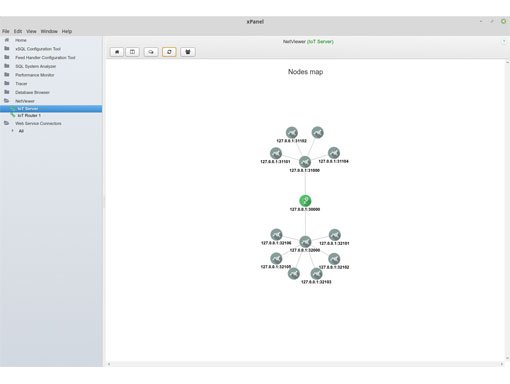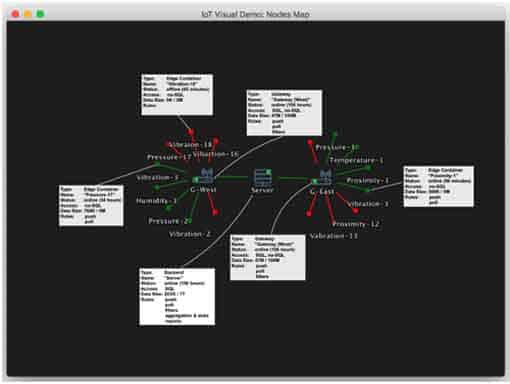DBMS for IoT
Eliminate Data Loss Between Device and Server
eXtremeDB Active Replication Fabric™ (ARF) allow device-based applications to collect data, then transmit the collected data when connected. Likewise, they also allow replicating server-side data to IoT devices; a common task for new device configuration and provisioning. Data flow is fully automated through the Active Replication Fabric. The APIs provide automatic or on-demand data exchange between collection points and servers.

ARF solves 5 challenges for IoT system developers:
- Bidirectional Replication
- Intermittent connections
- Multi-tier replication (e.g. edge-to-gateway-to-gateway-to-cloud)
- Security
- Compression to maximize limited bandwidth networks
Multi-tier Network Topology and Network Discovery

eXtremeDB’s Active Replication Fabric supports complex IoT network topology; edge devices connect to gateways, gateways connect to other gateways closer to the cloud, which ultimately connect to servers in the cloud which may themselves consist of many shards/nodes. Further, any eXtremeDB instance in this topology might also be a member of a high availability group or an eXtremeDB Cluster. eXtremeDB’s xPanel dashboard includes a visual network discovery tool that greatly simplifies managing, monitoring and leveraging eXtremeDB’s tracing capability.
Data Compression
Specific for a DBMS for IoT, eXtremeDB has several options to reduce data:
- Columnar data compression: Run-length encoding (RLE) compression can be applied to columnar data. Tests show that activating this feature reduced storage space requirements by 75% and improved the speed of reading the database by 21%.
- Non-columnar data compression: eXtremeDB also includes a feature for compressing non-columnar data.
- Low-level netowrk compression: eXtremeDB implements compression at its System Abstraction Layer (SAL), meaning that compression can be applied to any supported socket type (plain TCP, SSL, local-domain, UDP and others).
IoT Software Development Toolkit
- A bundled setup that eliminates the need to learn different DBMS and leverages staff skills.
- A wide range of supported data types
- Native and SQL APIs for C/C++, Java, C#, Python
- Numerous features built-in to prevent data corruption and maximize reliability

